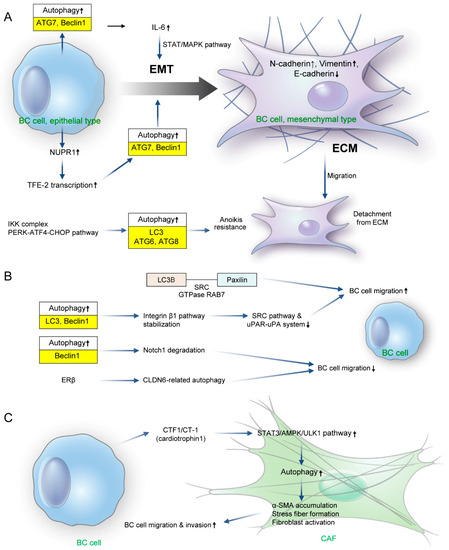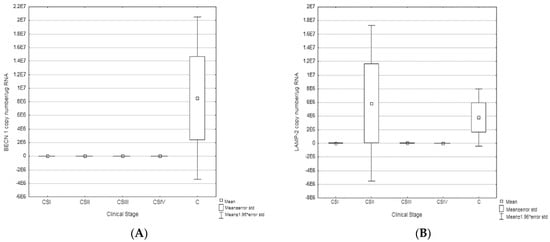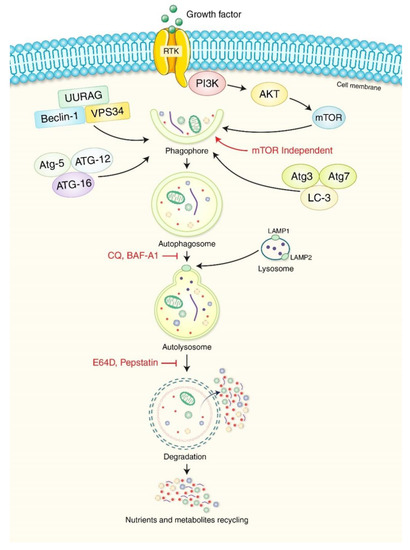Autophagy in Cancer and Metastasis
A topical collection in Biomedicines (ISSN 2227-9059). This collection belongs to the section "Cancer Biology and Oncology".
Viewed by 13883Editors
Interests: breast cancer; bone metastasis; tumor microenvironment; invasive growth; epithelial–mesenchymal transition; autophagy; signal transduction; immunohistochemistry; animal models
Special Issues, Collections and Topics in MDPI journals
2. Department of Athletics, Strength and Conditioning, Poznań University of Physical Education, Królowej Jadwigi 27/39, 61-871 Poznań, Poland
Interests: endocrine function of muscle-skeletal tissue; molecular biomarkers of muscle-skeletal tissue functions; primary and metastatic bone tumors; pre-analytical phase of biomarkers measurement
Interests: breast cancer; bone metastasis; bone tumors; tumor microenvironment; invasive growth; epithelial-mesenchymal transition; miRNAs; NK cells; immune evasion; miRNA-based therapeutics
Topical Collection Information
Dear Colleagues,
Autophagy is a conserved catabolic process necessary for cells to maintain homeostasis and to respond to different environmental stresses through the recycling of their damaged cellular proteins, organelles, and other cellular components. Alteration in autophagy machinery may lead to diverse pathological conditions, including cancer. A close relationship between autophagy, malignant transformation, and cancer progression has been demonstrated in recent decades. Emerging evidence shows a role for autophagy in the modulation of tumor cell motility and invasion, in the promotion and maintenance of the stem-cell phenotype, in drug resistance, in tumor dormancy, and in immune surveillance, all of which are involved in the survival of cancer cells and in the development of metastases. Autophagy has both pro- and anti-tumorigenic roles, depending on the oncogenic context and the stage of tumorigenesis.
This Topical Collection provides a general overview of how autophagy affects cancer growth and modulates the development and spread of metastases. Particular emphasis will be given to the new ways of targeting autophagy to improve treatment outcomes or prevent cancer progression and metastatic disease.
Research and review articles on this topic are invited.
Dr. Paola Maroni
Prof. Dr. Giovanni Lombardi
Dr. Marta Gomarasca
Collection Editors
Manuscript Submission Information
Manuscripts should be submitted online at www.mdpi.com by registering and logging in to this website. Once you are registered, click here to go to the submission form. Manuscripts can be submitted until the deadline. All submissions that pass pre-check are peer-reviewed. Accepted papers will be published continuously in the journal (as soon as accepted) and will be listed together on the collection website. Research articles, review articles as well as short communications are invited. For planned papers, a title and short abstract (about 100 words) can be sent to the Editorial Office for announcement on this website.
Submitted manuscripts should not have been published previously, nor be under consideration for publication elsewhere (except conference proceedings papers). All manuscripts are thoroughly refereed through a single-blind peer-review process. A guide for authors and other relevant information for submission of manuscripts is available on the Instructions for Authors page. Biomedicines is an international peer-reviewed open access monthly journal published by MDPI.
Please visit the Instructions for Authors page before submitting a manuscript. The Article Processing Charge (APC) for publication in this open access journal is 2600 CHF (Swiss Francs). Submitted papers should be well formatted and use good English. Authors may use MDPI's English editing service prior to publication or during author revisions.
Keywords
- autophagy
- cancer
- metastasis
- cancer treatment
- tumor dormancy
- immune surveillance
- autophagy inhibitors
- autophagy activators
- anoikis












